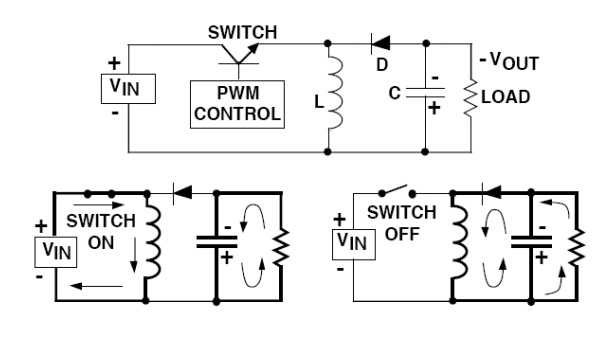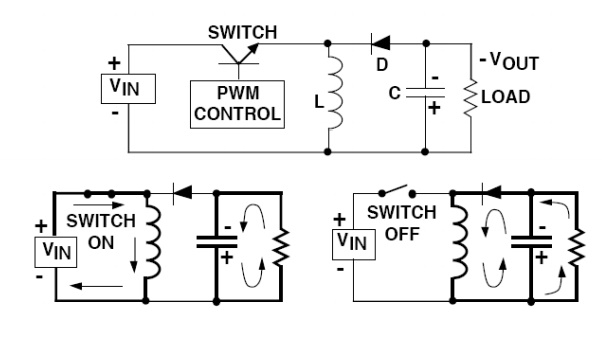Chapter: Linear Integrated Ciruits : Application of ICs
Buck-Boost (Inverting) Regulator

Buck-Boost (Inverting) Regulator:
The
Buck-Boost or Inverting regulator takes a DC input voltage and produces a DC
output voltage that is opposite in polarity to the input. The negative output
voltage can be either larger or smaller in magnitude than the input voltage.
The Inverting regulator is shown in Figure

When the
switch is on, the input voltage is forced across the inductor, causing an
increasing current flow through it. During the on time, the discharge of the
output capacitor is the only source of load current. This requires that the
charge lost from the output capacitor during the on time be replenished during
the off time. When the switch turns off, the decreasing current flow in the
inductor causes the voltage at the diode end to swing negative. This action
turns on the diode, allowing the current in the inductor to supply both the
output capacitor and the load. As shown, the load current is supplied by
inductor when the switch is off, and by the output capacitor when the switch is
on.
Related Topics